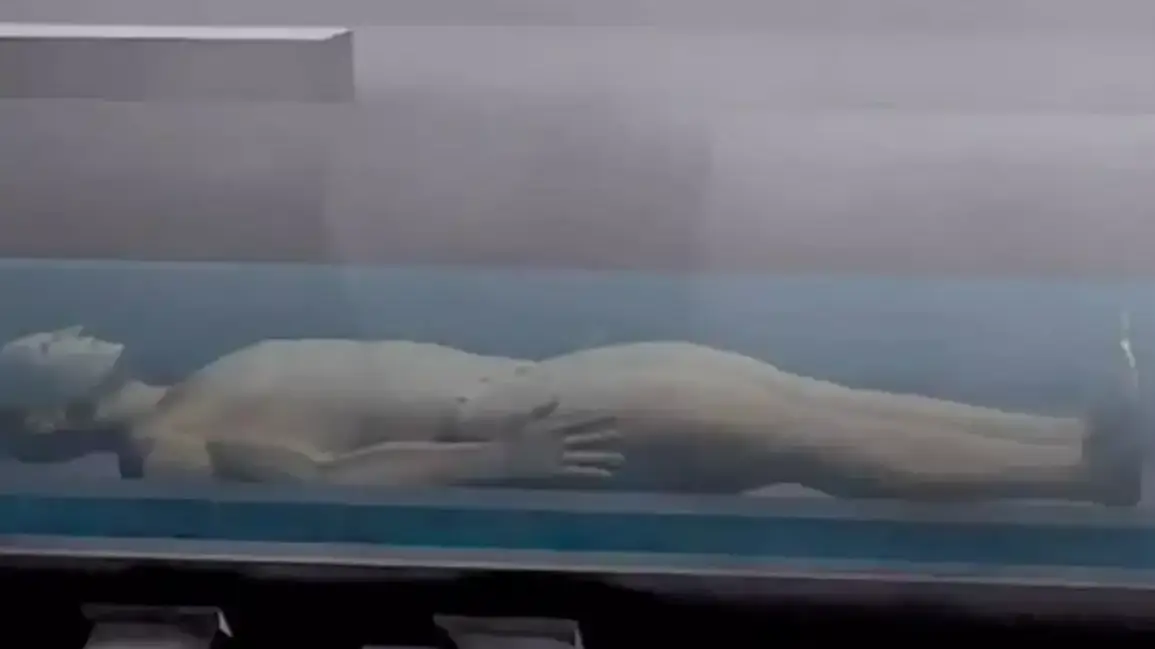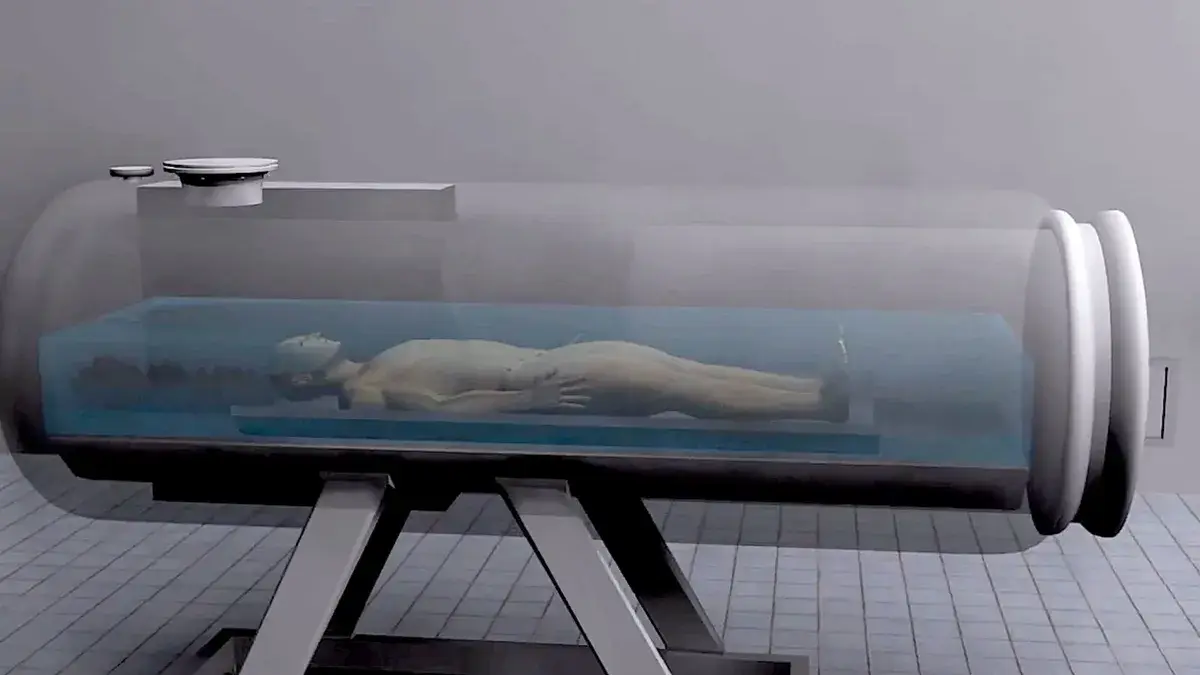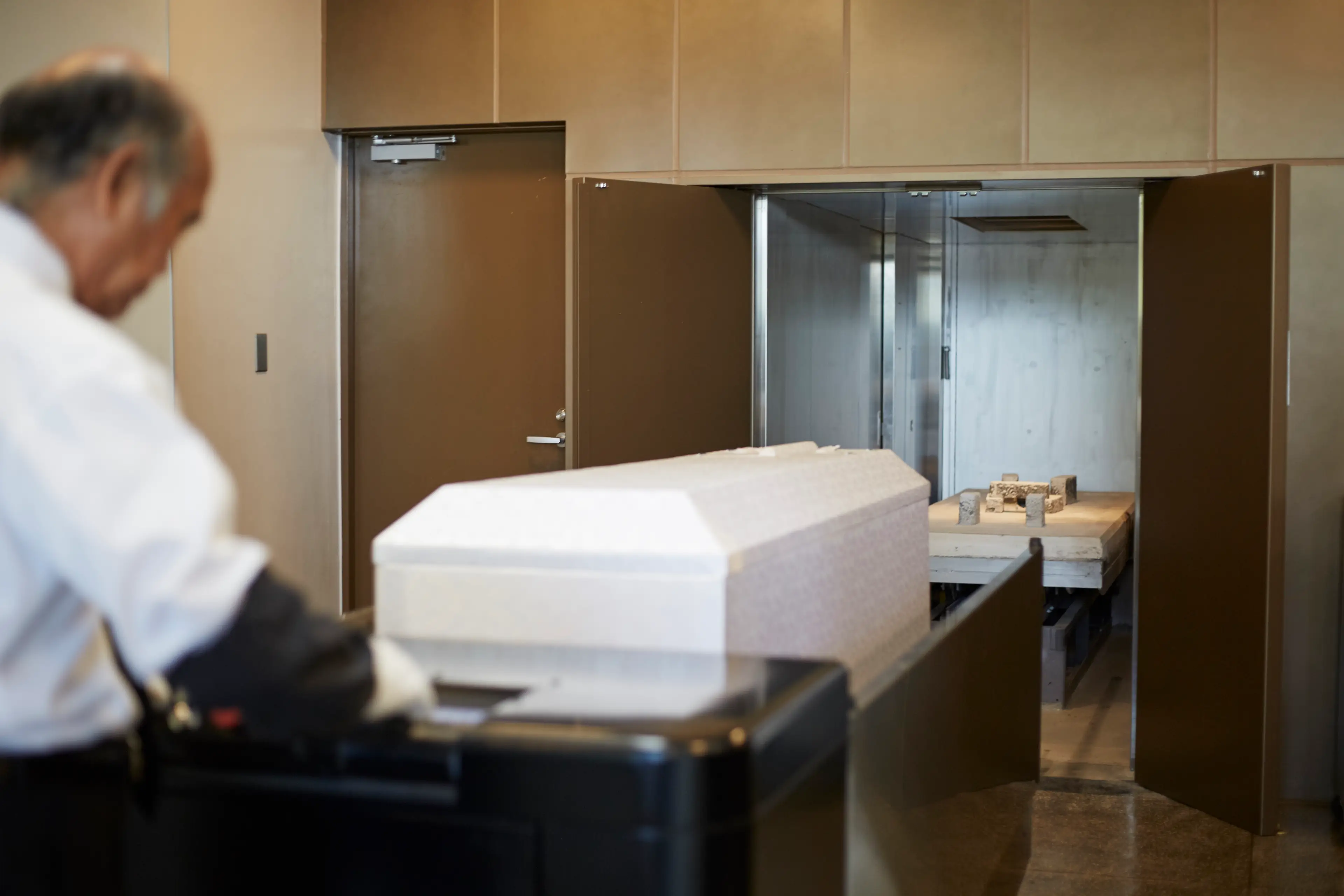
A new option is now available for how we can dispose of our mortal remains after we die.
Death is coming for all of us sooner or later so unfortunately funeral arrangements are something we will all have to consider.
While it's a mystery as to whether we go off to an afterlife or once we die that's it, there is one big consideration for after we shuffle off the mortal coil.
Advert
That is how we would like our body to be disposed of after we're gone.
You've heard of cremation and burial, both more traditional options when it comes to what to do with your body after death.
There's also burial at sea if you want a more nautical theme, though there are rules about this to make sure you don't give any swimmers a nasty surprise.
A more unusual option is composting, where you're sealed in a container with a fungus which quickly breaks down your body until all that's left is soil.
But there's now another option which people can consider which takes things in a different direction entirely.
So what is it?

It's called 'aquamation', and if you think that sounds like 'cremation' then you'd be on the right track.
Rather than using fire it uses water to dispose of a body, as the name suggests.
'Aquamation' involves placing a body into a pressurised container which is then pumped full of water and potassium hydroxide.
This is then heated to around 160C, or 320F, with the heat applied at a higher pressure which stops it from boiling.
The combination of the alkalis solution and the high pressure breaks down the body over time, until just the bones are left behind.
You can still get ashes though, as the bones are then dried in an oven and reduced to a dust.

Meanwhile, the liquified remains can then be used as a fertiliser as the substance contains amino acids and salts.
If you wanted to, you could plant a tree and then use your loved ones' liquified remains to help it grow as a lasting tribute to them.
The mixture can also be neutralised and released safely into waterways.
So if you didn't have the best relationship with the deceased then tipping them down the sink is also an option, though that's entirely up to you of course.
Bio-Response Solutions is a business based in the US that specialises in aquamation, and claims that it uses '90 percent less energy' than cremation, as well as not emitting any greenhouse gases.
Would you want to be aquamated?
